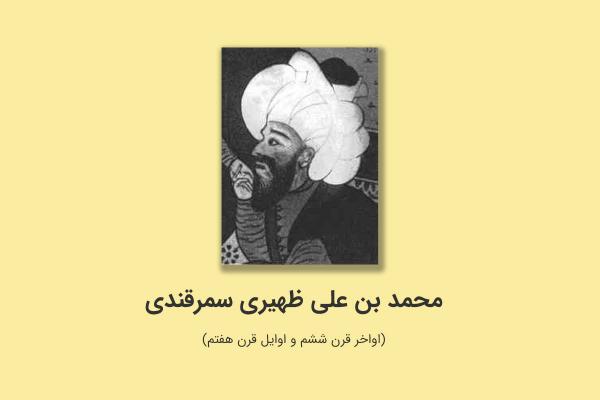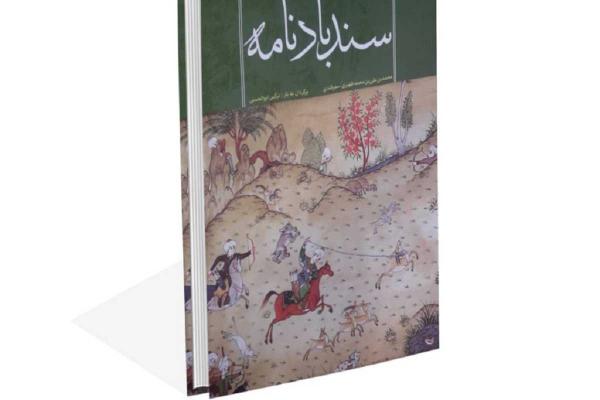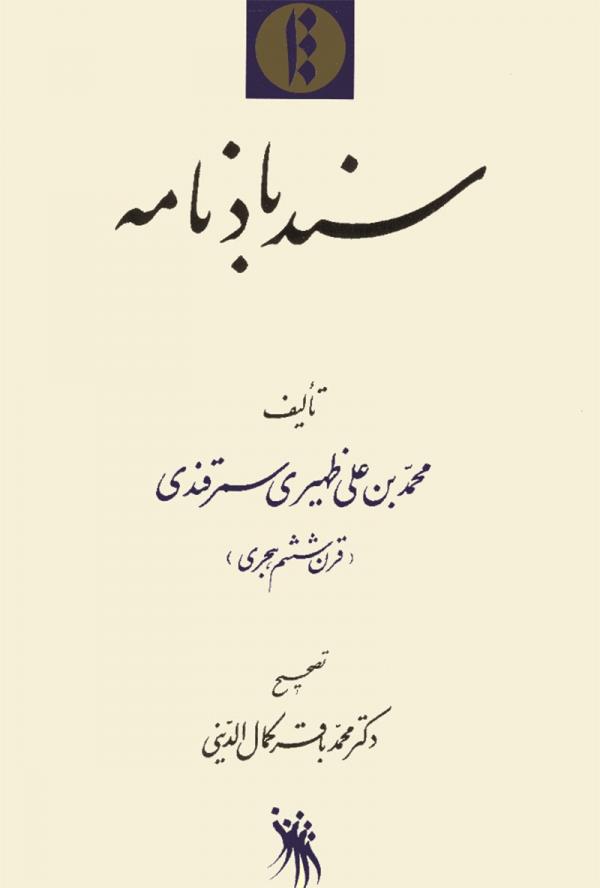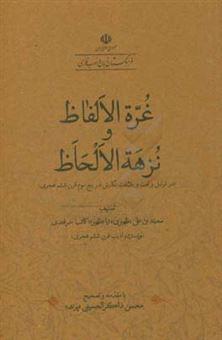Zahiri Samarkandi; A famous writer of the sixth and seventh centuries

 Zahiri Samarkandi
Zahiri SamarkandiSummary of the biography of Zahiri Samarkandi
Full name: Muhammad bin Ali bin Muhammad Zahiri Samarkand
Date of birth: late 6th century
Origin: Northern Iran
Profession: Scribe and author
Kingdom period: Qulaj Tamghaj Khan Ibrahim
Works: Agraz al-Siyasah fi Araz al-Rayasa, Sindbadnameh, Sama al-Zaheer fi Jum al-Dzafir
 Biography of Zahiri Samarkandi
Biography of Zahiri SamarkandiBiography of Zahiri Samarkandi
Muhammad bin Ali bin Muhammad Zahiri Samarkandi, who was known as Zahiri Samarkandi, lived in the late 6th and early 7th centuries. It has been said that the origin of this author goes back to the north of Iran. He was one of the famous writers of his time. Zahiri Samarkandi served in the court of Qulaj Tamghaj Khan Ibrahim, the last king of Al-Afrasiab dynasty (died around 600 AD).
Although it is not clear how long Zahiri Samarkandi was alive, the important thing is his ability to write. This author has a high position in the court of the last king Al Afrasiab and was highly respected by the king.
 Zahiri Samarkandi's works
Zahiri Samarkandi's worksZahiri Samarkandi's works
Among the works and writings of Zahiri Samarkandi, the following can be mentioned:
– The goals of politics in the goals of the presidency
– Documentary document
– Sama al-Zahir in the group of al-Zafir
 Sinbad Namah Zahiri Samarkandi
Sinbad Namah Zahiri SamarkandiRegarding the book of Sindbadnameh or the book of Sindbad, it can be said that in the preface of his rewrite, Zahiri Samarqandi wrote a book, “Provided by the sages of Ajam”, which was first translated from Pahlavi into simple Persian by Khwaja Umid Abolfavares Fanarozi by the order of Noah bin Nasr Samani in the year 339 of the lunar year. became.
 Scribe and writer of the sixth and seventh century, Zahiri Samarkandi
Scribe and writer of the sixth and seventh century, Zahiri SamarkandiAfter that, speakers such as Rudaki, Azraghi Heravi and Jalal Azad tried to organize this book. Zahiri Samarqandi rewrote this book in technical prose and embellished it with Quranic verses, hadiths, poems and Persian and Arabic idioms.
compilation: Cover biographical section






